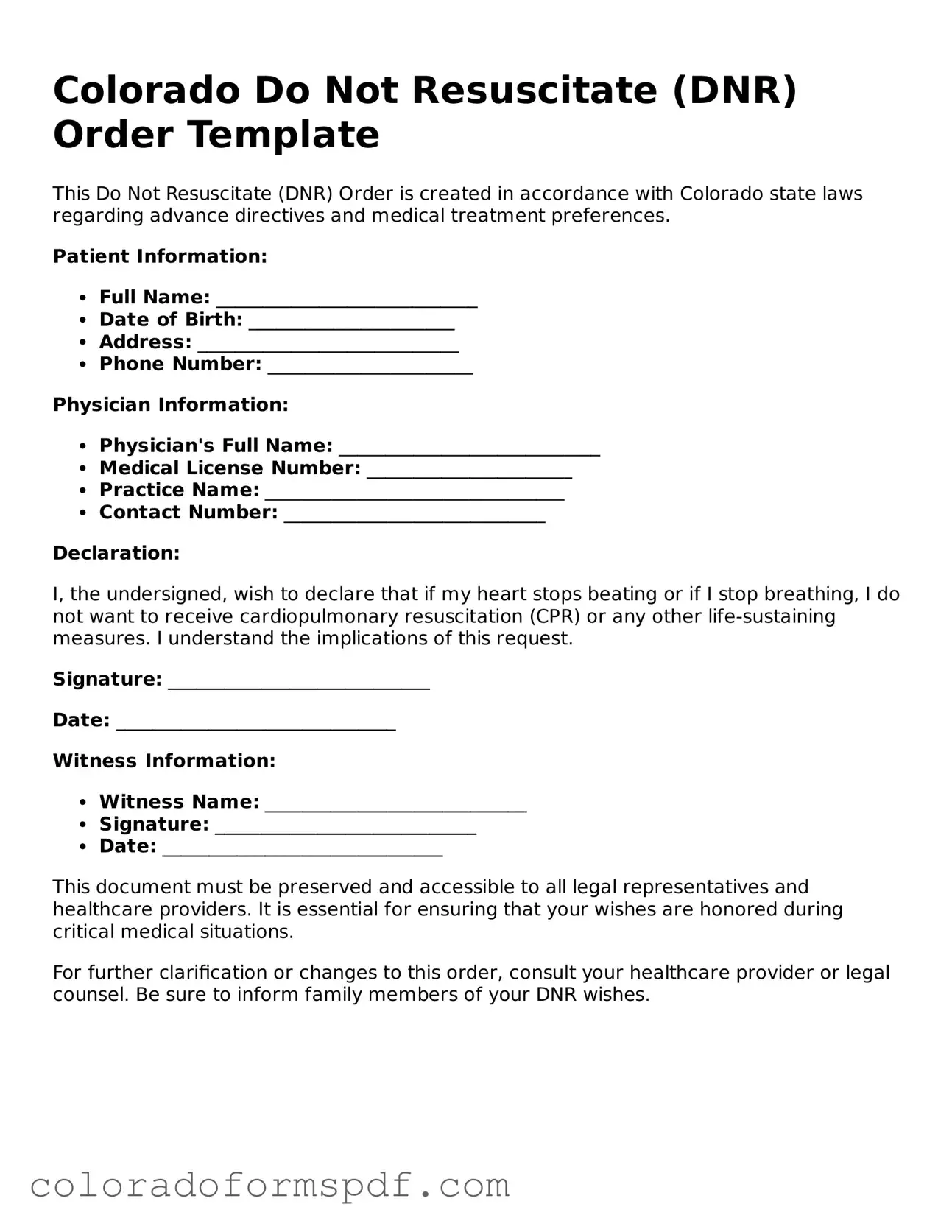Official Do Not Resuscitate Order Template for Colorado State
A Colorado Do Not Resuscitate Order (DNR) form is a legal document that allows individuals to refuse resuscitation efforts in the event of a medical emergency. This form provides clear instructions to healthcare providers about a patient's wishes regarding life-saving measures. Understanding this form is essential for ensuring that personal healthcare preferences are respected during critical situations.
Get Document Online

Official Do Not Resuscitate Order Template for Colorado State
Get Document Online

Get Document Online
or
Download PDF
Quick form completion starts here
Edit and finish your Do Not Resuscitate Order online, then download.